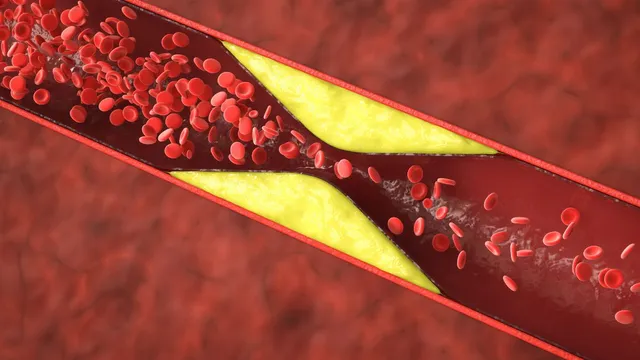- By Iram Hussain
- Sat, 27 Sep 2025 04:21 PM (IST)
- Source:JND
Heart diseases are the leading cause of death globally and one of its most common cause is plaque formation build-up in the arteries also known as coronary artery disease. Plaque is a combination of cholesterol, fats and other substances that builds up inside the walls of your arteries. These are the most important blood vessels that circulate blood containing oxygen to other parts of your body from the heart. This accumulation with time leads to the narrowing and hardening of the arteries, making it harder for blood to flow freely. This silent process, known as atherosclerosis can begin as early as your 20s or 30s caused by poor diets, sedentary lifestyles, smoking and stress.
Unlike a severe disease, plaque slowly accumulates inside the blood arteries, narrowing them until it causes chest pain, breathing difficulties or, in extreme cases, a fatal heart attack. In a conversation with The Daily Jagran, Dr Himanshu Gupta, Consultant - Cardiology, Manipal Hospital, Jaipur explained about the coronary artery disease and the preventive measures to keep the heart healthy.
What is Coronary Artery Disease (CAD)?
Coronary Artery Disease is a condition that happens when plaque hardens, leading to narrowing of the arteries that bring blood to the heart muscle. When the heart can’t get sufficient blood, oxygen and nutrition, it can lead to serious complications. Angina, or chest pain is the most common symptom which can feel like pressure, tightness or squeezing. Other symptoms can be shortness of breath, fatigue or pain in the arms, neck or jaw. When one of the fragments of plaque breaks off, it may cause a blood clot that can completely block the blood circulation in the heart, thus causing a heart attack.
ALSO READ: Gut Health And Heart Health: Doctor Explains The Connection Between Gut Bacteria And Cholesterol
How to prevent CAD?
Although the accumulation of plaque was earlier believed to be irreversible, current medicine, as well as lifestyle modification also presents some viable hope of controlling the situation. Early detection helps to reduce the chance of severe conditions. However, in case of extreme conditions, CAD can be treated through minimally invasive procedures like angioplasty, stent placement and coronary artery bypass graft (CABG). Hence, to avoid such a severe situation, people can make some lifestyle modifications such as:
- Consume a healthy diet: Consume a heart-healthy diet with minimal saturated fats and cholesterol. It is essential to have a balanced meal with fruits and vegetables, whole grains, nuts, and protein.
- Exercise regularly: Activities such as brisk walking, cycling and swimming are essential to keep the healthy. Physical activity helps maintain a healthy weight, lowers blood pressure, and improves cholesterol.
- Quit smoking: Tobacco is one of the fastest accelerators of plaque buildup. Quitting reduces heart risk at a greater pace.
- Maintain a healthy weight: Even losing 5–10% of excess weight can significantly reduce strain on the heart and even reduce the chances of other serious conditions.
- Reduce stress: Chronic stress can raise blood pressure and leads to the buildup of plaque in arteries, adversely raising the risk of having heart disease, strokes, and cardiac conditions.
Knowing the risk of the buildup of plaque and undertaking the measures in advance, you will be able to save your heart and manage your heart issues. Waiting to have symptoms develop is not an option. Discuss with your cardiologist about your risk factors and what you can do to keep your arteries and your heart healthy.

